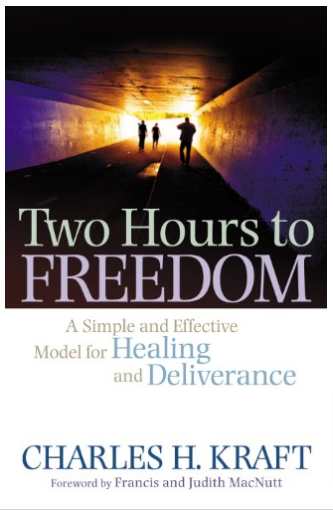In the journey towards personal and spiritual wholeness, the paths of healing and deliverance are integral. While the process can seem daunting, adopting a simple and effective model for healing and deliverance can facilitate profound changes in one’s life. This model is rooted in understanding, acceptance, prayer, and community support—each step building upon the last, guiding individuals towards freedom and healing.
Step 1: Understanding the Need
The journey toward healing and deliverance begins with a critical, often challenging step: understanding the need. This foundational phase is about honest self-assessment and recognition of the areas in our lives that are broken or in bondage. It’s about peering into the deepest recesses of our hearts and lives to identify the wounds that we’ve carried, perhaps silently, for years. These may include emotional traumas from our past, entrenched patterns of sin that ensnare us, or spiritual battles that leave us feeling defeated and weary.
The Challenge of Self-Reflection
Engaging in this deep introspection requires courage. It’s not easy to confront the aspects of ourselves that are hurt or broken. Yet, it’s in acknowledging our brokenness that we can begin to seek healing. Psalm 139:23-24 offers a prayer for this kind of introspective courage: “Search me, God, and know my heart; test me and know my anxious thoughts. See if there is any offensive way in me, and lead me in the way everlasting.” This verse underscores the importance of inviting God into our self-examination, allowing His light to illuminate the areas that need His touch.
The Need for Divine Intervention
Recognizing our areas of hurt and bondage brings us to the humbling realization that we cannot heal ourselves. The complexities of our hearts and the depth of our wounds often surpass human understanding and capability. Jeremiah 17:9 points to the deceitful nature of the heart, highlighting our need for God’s discernment and healing. It is a reminder that true healing and freedom from bondage are found not in our efforts but in divine intervention and guidance.
Step 2: Acceptance and Surrender
Once we have recognized our areas of need, the path forward involves acceptance and surrender. This step is not about passive resignation but about an active choice to acknowledge our limitations and to place our trust in God’s ability to heal and transform us.
The Power of Surrender
Surrender is a powerful act of faith. It is the process of letting go of our attempts to control our healing and deliverance and instead, entrusting these processes to God. In surrender, we acknowledge that God’s plans for us are higher than our own and that His power to heal goes beyond our understanding. The act of casting our cares on Him, as instructed in 1 Peter 5:7, is both a release of our burdens and a declaration of our trust in His loving sovereignty over our lives.
Opening to Transformation
This step of acceptance and surrender is transformative. It marks the beginning of our cooperation with God’s work in our lives. As we surrender, we become open vessels for His healing power and grace. This openness allows God to work within us, transforming our pain into purpose, our bondage into freedom, and our wounds into sources of wisdom and strength.

Step 3: Prayer for Healing and Deliverance
Prayer is the lifeline that not only connects us to God but also anchors us in His promises of healing and freedom. It is in the intimate space of prayer that we lay bare our wounds, our struggles, and our deepest needs before God, trusting in His power to mend what is broken and to liberate us from the chains that bind us.
The Essence of Prayer in Healing
In the sacred act of prayer, we acknowledge our dependence on God’s strength and grace for healing and deliverance. It’s an act of faith, a declaration that despite the pain or bondage we experience, we believe in God’s ability to restore and renew. James 5:14-15 reinforces this, stating, “Is anyone among you sick? Let them call the elders of the church to pray over them and anoint them with oil in the name of the Lord. And the prayer offered in faith will make the sick person well; the Lord will raise them up.” This passage highlights the transformative power of prayer offered in faith, underscoring that healing is a manifestation of God’s mercy and power.
The Power of Persistent Prayer
Healing and deliverance are often processes rather than instantaneous events. Persistent prayer—continually seeking God’s intervention, guidance, and strength—is crucial. Luke 18:1-8 recounts the parable of the persistent widow, teaching us the value of persistency in prayer. This persistence is not about changing God’s will but aligning ourselves more closely with His purposes and timing, growing in faith as we wait on Him.
Step 4: Community Support
The journey of healing and deliverance, while deeply personal, is not meant to be walked alone. The Christian faith underscores the importance of community in sustaining and supporting this journey.
The Role of Community in Healing
A faith-based community offers more than just companionship; it provides spiritual support, accountability, and a space where we can be vulnerable and authentic. In community, we find a network of believers who remind us of God’s truth, counteracting the lies and doubts that can hinder our healing. Galatians 6:2 tells us to “Carry each other’s burdens, and in this way, you will fulfill the law of Christ.” This mutual bearing of burdens is a beautiful expression of love and obedience to Christ, showcasing the strength and healing that come from unity.
The Strength of Collective Prayer
The collective prayers of a community have a profound impact. As we join with others in prayer, our faith is bolstered, our spirits are uplifted, and the presence of God is manifested powerfully among us. The early church in Acts 4:23-31 exemplifies this, as they united in prayer for boldness amidst persecution, resulting in a tangible filling of the Holy Spirit. This unity in prayer is a testament to the power of communal intercession and its role in the process of healing and deliverance.
Embracing the Journey
Healing and deliverance are ongoing processes that require patience, persistence, and faith. While the model outlined above is simple, its effectiveness lies in its execution with sincerity, humility, and trust in God. By understanding our need, accepting our circumstances, engaging in prayer, and leaning on our community, we open the door to God’s healing and transformative power in our lives. Embrace this journey with an open heart and faith in the One who promises restoration and freedom.

